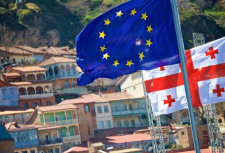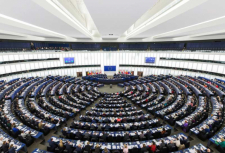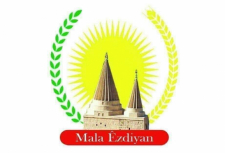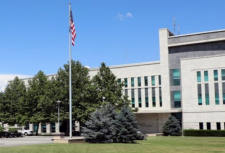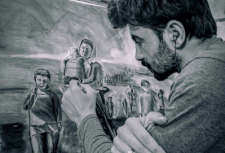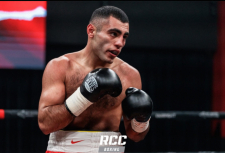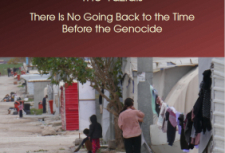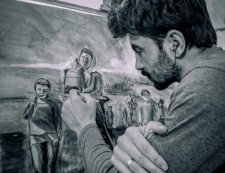The Plight of Yazidi Women: An Interview With Johanna Higgs. by K.J. Wetherholt / MIPJ
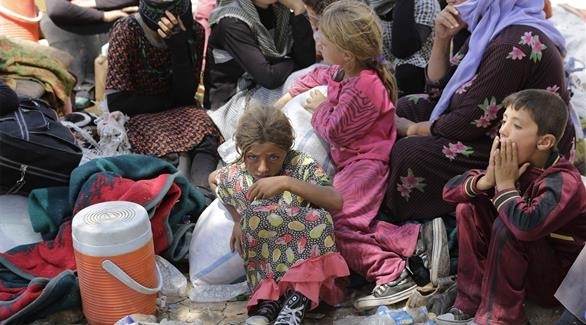
*Johanna Higgs is a cultural anthropologist who has worked with women worldwide, focusing on the treatment of women, including via her organization, Project Monma. Here she is interviewed about her experience with indigenous Yazidi women of Kurdish Iraq subjugated by Daesh.
MIPJ: You went to Lalish, the spiritual center among the Yazidis, to learn more about the Yazidi experience of ISIS. What did you learn about the Yazidis in general, and what did you learn about the experiences of Yazidi women when it came to ISIS?
We spent quite a bit of time with the Yezidi’s while in northern Iraq, who have suffered a lot at the hands of ISIS. We met with a number of Yezidis at Lalish and also in some of the IDP camps around Erbil in northern Iraq. They all recounted stories of horror, violence and displacement. Thousands of men were murdered when ISIS entered Sinjar and thousands of girls have also been taken as sex slaves and are being sold in markets inside Mosul in northern Iraq and Raqqua in the north of Syria. Yezidi’s who have been captured or who are still in Mosul have been given the opportunity to convert to Islam and or die. Girls who are returning are reporting atrocious acts of violence from ISIS, of slavery, of beatings and being sold to different men, for different prices, depending on how beautiful she is. It was difficult to be there, to hear those stories and to look at young girls, knowing that they could have been potential victims. We were also able to meet with the Baba Sheik who is their spiritual leader. Traditionally, in the Yezidis, if a girl is raped, she would then need to be killed. Her honor has been destroyed, according to their beliefs. The Baba Sheik has however asked that the Yezidi community accept the girls and accept them fully, which is quite a momentous move for Yezidi women. However, while ISIS is still present in the region they will continue to be threatened. I asked one Yezidi woman who I met in a small makeshift IDP camp in Erbil what she would like the world to know about the Yezidi women, she said,’ We want them to know about what has happened to us, hundreds and hundreds of died on the mountain with no food and no water. Many children died to the mountain with no food and no water. Old woman, everyone who stayed behind was killed. Daughter, our lives have been destroyed. These atrocities happened to us because of our faith because we are not Muslim. They told the whole village to convert or die. They said we are here to exterminate you if you don’t convert.
MIPJ: What has it taken for women in the region, given their experiences either with ISIS, or in being vulnerable in IDP camps, to feel more empowered?
I think that unfortunately for women who are put into these harsh conditions, there is little that can help them to feel empowered. The men in these environments make sure of that. This is why protection is so important and that the international community works together to take extreme measures to provide greater protection to women, particularly in hostile environments and to encourage a global reconceptualization of the role of women where respect and tolerance for women’s rights, particularly for women’s rights to safety, are acknowledged and accepted by everyone. The global community must also actively work together to shame men who try stop women from having access to rights and in particular to men who promote sexual harassment, rape and sexual slavery.
MIPJ: You are trained as a cultural anthropologist – what has been most important to your work in this region, and then what has been most important to you personally in terms of experience?
For me, learning about the role of women and what types of violence and discrimination women face has become an incredibly important to me throughout my work. It has become important because I have seen that throughout the world violence and discrimination against women is everywhere, regardless of religion or culture. It exists in different intensities in different parts of the world and women face different forms of violence and discrimination but nevertheless its everywhere. As an anthropologist, I can see that a large amount of the discrimination and violence is justified under the banner of ‘culture’ and hidden under layers of ‘normality’. Most people don’t question the violence and discrimination because ‘its always been there’. It’s ‘normal’ for a man to hit his wife. It’s ‘normal’ to sexually harass women in the street. It’s ‘normal’ to say women are not equal to men. None of these things should ever, ever be ‘normal’. However, I think globally that these attitudes persist in part because of taboos and shames that stop women from reporting abuse and harassment which make a lot of women afraid to speak out. One women’s rights activist who I met on my first trip to Iraq had to flee to Norway because she was being threatened by the Islamists in the country, just because she was speaking out for women’s rights. It’s brutally oppressive and in many parts of the world women feel that they will be attacked, critized and stigmatized just for speaking out to say that they want rights. It’s an absolute disgrace.
MIPJ: Could you explain more about your organization, Monma, and its mission?
Project Monma is a women’s rights organization that aims to raise awareness about violence and discrimination against women and girls around the world. Through our awareness raising events and research projects we hope we can continuously encourage people around the world to recognize that violence and discrimination against women and girls is a global problem and encourage them to be part of the movement for change in their own homes and communities. PKK’s Mohammed Ocalan’s last statement in your article in The Huffington Post, during your interview with him, was that “women must free themselves to be free.” As your work in your organization involves women’s rights and issues, could you explain what that statement means to you personally, given your experiences overall among vulnerable populations? To me personally, it means that women need to fight against the oppression that they are facing throughout the world. They need to free themselves from the ‘cultural norms’ and ‘traditions’ that restrain their movement, their ability to make choices over their own lives and their right to be able to live a life free of violence be it abuse from a husband or a boyfriend, rape, harassment in the street or the suggestion that they are somehow inferior based simply on their gender. What I believe Ocalan was referring to here was that women have to take action to make themselves free from these constraints, not just wait for it to happen.
Yazidis.info
Tags:
The Plight of Yazidi Women: An Interview With Johanna Higgs. by K.J. Wetherholt / MIPJ

*Johanna Higgs is a cultural anthropologist who has worked with women worldwide, focusing on the treatment of women, including via her organization, Project Monma. Here she is interviewed about her experience with indigenous Yazidi women of Kurdish Iraq subjugated by Daesh.
MIPJ: You went to Lalish, the spiritual center among the Yazidis, to learn more about the Yazidi experience of ISIS. What did you learn about the Yazidis in general, and what did you learn about the experiences of Yazidi women when it came to ISIS?
We spent quite a bit of time with the Yezidi’s while in northern Iraq, who have suffered a lot at the hands of ISIS. We met with a number of Yezidis at Lalish and also in some of the IDP camps around Erbil in northern Iraq. They all recounted stories of horror, violence and displacement. Thousands of men were murdered when ISIS entered Sinjar and thousands of girls have also been taken as sex slaves and are being sold in markets inside Mosul in northern Iraq and Raqqua in the north of Syria. Yezidi’s who have been captured or who are still in Mosul have been given the opportunity to convert to Islam and or die. Girls who are returning are reporting atrocious acts of violence from ISIS, of slavery, of beatings and being sold to different men, for different prices, depending on how beautiful she is. It was difficult to be there, to hear those stories and to look at young girls, knowing that they could have been potential victims. We were also able to meet with the Baba Sheik who is their spiritual leader. Traditionally, in the Yezidis, if a girl is raped, she would then need to be killed. Her honor has been destroyed, according to their beliefs. The Baba Sheik has however asked that the Yezidi community accept the girls and accept them fully, which is quite a momentous move for Yezidi women. However, while ISIS is still present in the region they will continue to be threatened. I asked one Yezidi woman who I met in a small makeshift IDP camp in Erbil what she would like the world to know about the Yezidi women, she said,’ We want them to know about what has happened to us, hundreds and hundreds of died on the mountain with no food and no water. Many children died to the mountain with no food and no water. Old woman, everyone who stayed behind was killed. Daughter, our lives have been destroyed. These atrocities happened to us because of our faith because we are not Muslim. They told the whole village to convert or die. They said we are here to exterminate you if you don’t convert.
MIPJ: What has it taken for women in the region, given their experiences either with ISIS, or in being vulnerable in IDP camps, to feel more empowered?
I think that unfortunately for women who are put into these harsh conditions, there is little that can help them to feel empowered. The men in these environments make sure of that. This is why protection is so important and that the international community works together to take extreme measures to provide greater protection to women, particularly in hostile environments and to encourage a global reconceptualization of the role of women where respect and tolerance for women’s rights, particularly for women’s rights to safety, are acknowledged and accepted by everyone. The global community must also actively work together to shame men who try stop women from having access to rights and in particular to men who promote sexual harassment, rape and sexual slavery.
MIPJ: You are trained as a cultural anthropologist – what has been most important to your work in this region, and then what has been most important to you personally in terms of experience?
For me, learning about the role of women and what types of violence and discrimination women face has become an incredibly important to me throughout my work. It has become important because I have seen that throughout the world violence and discrimination against women is everywhere, regardless of religion or culture. It exists in different intensities in different parts of the world and women face different forms of violence and discrimination but nevertheless its everywhere. As an anthropologist, I can see that a large amount of the discrimination and violence is justified under the banner of ‘culture’ and hidden under layers of ‘normality’. Most people don’t question the violence and discrimination because ‘its always been there’. It’s ‘normal’ for a man to hit his wife. It’s ‘normal’ to sexually harass women in the street. It’s ‘normal’ to say women are not equal to men. None of these things should ever, ever be ‘normal’. However, I think globally that these attitudes persist in part because of taboos and shames that stop women from reporting abuse and harassment which make a lot of women afraid to speak out. One women’s rights activist who I met on my first trip to Iraq had to flee to Norway because she was being threatened by the Islamists in the country, just because she was speaking out for women’s rights. It’s brutally oppressive and in many parts of the world women feel that they will be attacked, critized and stigmatized just for speaking out to say that they want rights. It’s an absolute disgrace.
MIPJ: Could you explain more about your organization, Monma, and its mission?
Project Monma is a women’s rights organization that aims to raise awareness about violence and discrimination against women and girls around the world. Through our awareness raising events and research projects we hope we can continuously encourage people around the world to recognize that violence and discrimination against women and girls is a global problem and encourage them to be part of the movement for change in their own homes and communities. PKK’s Mohammed Ocalan’s last statement in your article in The Huffington Post, during your interview with him, was that “women must free themselves to be free.” As your work in your organization involves women’s rights and issues, could you explain what that statement means to you personally, given your experiences overall among vulnerable populations? To me personally, it means that women need to fight against the oppression that they are facing throughout the world. They need to free themselves from the ‘cultural norms’ and ‘traditions’ that restrain their movement, their ability to make choices over their own lives and their right to be able to live a life free of violence be it abuse from a husband or a boyfriend, rape, harassment in the street or the suggestion that they are somehow inferior based simply on their gender. What I believe Ocalan was referring to here was that women have to take action to make themselves free from these constraints, not just wait for it to happen.
Yazidis.info
Tags:
